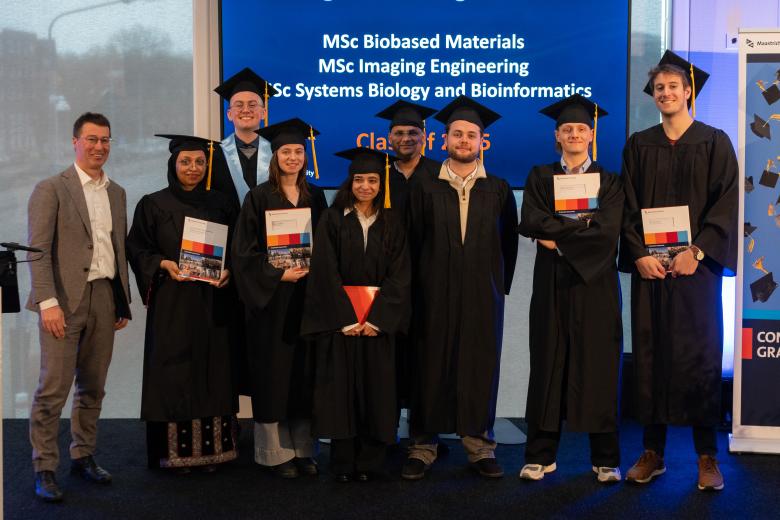HPIM - G&L-EPH Career Event 8 March 2017 - How to propel your career in healthcare?
A review by Anna Leppers, MSchallenger on behalf of HPIM
On March 8th 2017, students from the Master programmes Healthcare Policy, Innovation and Management and Governance and Leadership in European Public Health had the opportunity to take part in a one-day Career Event. It was jointly hosted by Maastricht University, UniPartners Maastricht and the UM Alumni Association. The aim of this event was to help the students prepare for the future after having finished their Master’s at UM. Moreover, it was meant to give us a good overview of possible career options, providing networking opportunities as well as increasing our insight into the practice of working in the health care sector. This is especially important now that we already find ourselves at the end of the programme.
After a warm welcome by Aggie Paulus (Associate Professor at the department of Health Services Research and programme director of HPIM), the coordinator of the UM Excellence Programme, Ellen Bastiaens, talked about students’ employability after graduating from Maastricht University. She stated that our studies at UM and this career event shall help us to not only become employable but FEEL employable. She was confident that as UM graduates, we are already well prepared for the future.
Following the introduction, an expert panel session was held. The experts were a PhD candidate, a corporate recruiter, a project manager, an employability coordinator as well as professors from Maastricht University. Because experts with many different backgrounds were involved, a fruitful discussion was expected to lie ahead. Questions such as what students should do when looking for a job, what is most important for an employer when selecting a candidate, what are best practices when it comes to job-seeking behaviour and what elements in a CV would discourage employers were part of the discussion. The experts discussed issues such as applicants’ public appearances, candidates’ assets such as flexibility and the ability to learn as well as the importance of networking. Accordingly, in a poll answered by the students prior to the panel session, 42 percent of students also regarded networking as the most relevant resource/capability when it comes to securing a job. It was very interesting to listen to the experts and students asking questions. My take-home message from the expert panel was: The future is open and we will shape it.
After the panel session, we moved onto our first workshop. The options of workshops to attend were: Discover your competencies, Job search strategies and Personal Branding. I chose the workshop on personal branding because I had previously asked myself about the required extent of self-presentation on platforms such as LinkedIn or Xing and other important factors when it comes to selling yourself on the market. In the workshop, we talked about the importance of the first impression during a job interview and that for example our body language already influences the other person’s initial impression. What is more, we prepared and held an elevator pitch, which is a short presentation about yourself. We were made aware of the fact that mostly our personal motivation for a job and our drive to start at that specific company or organisation differentiates us from other applicants. Therefore, in such an elevator pitch one needs to show the employer why you should be chosen before other candidates.
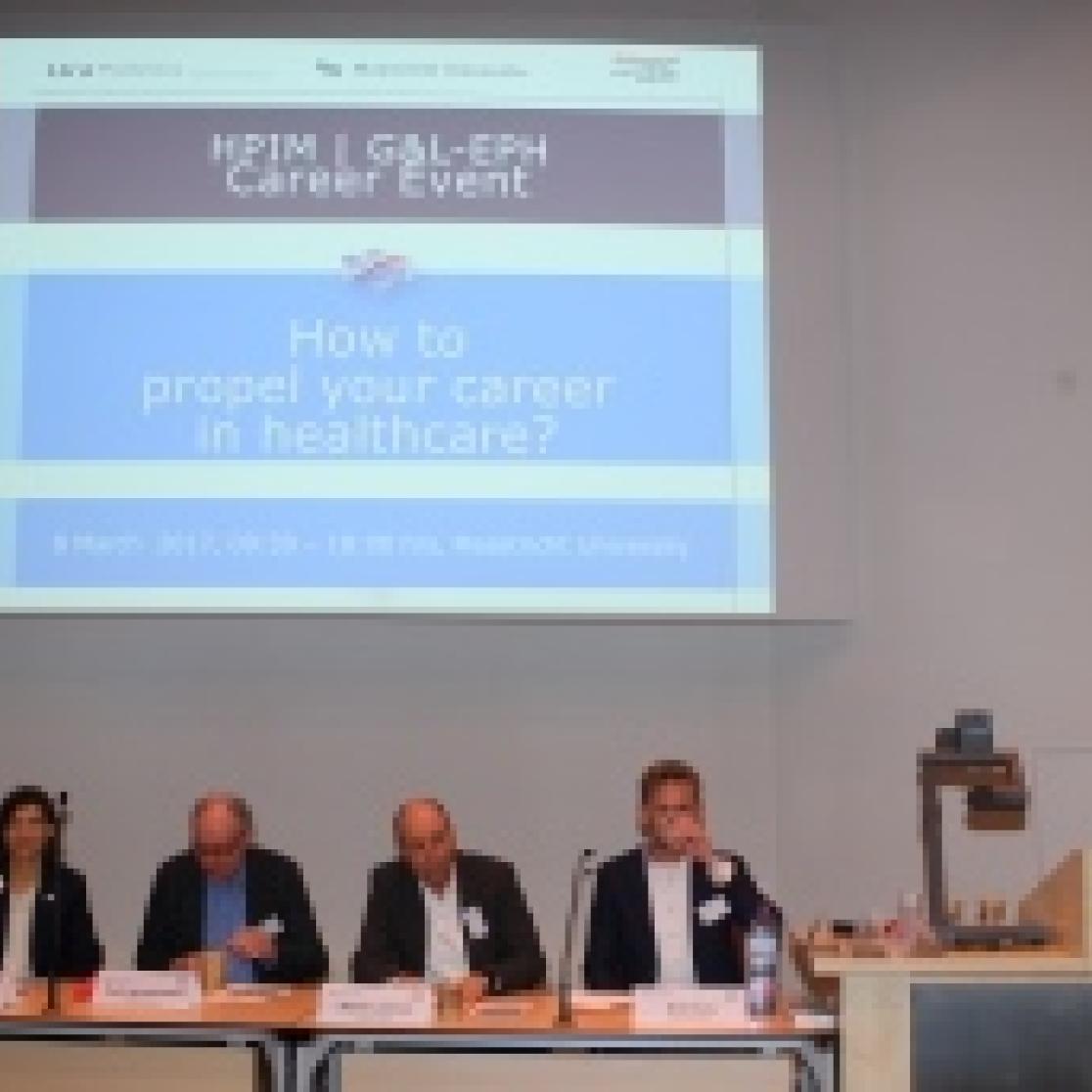
During the lunchbreak, we had the opportunity to informally chat with professors, PhD candidates as well as fellow students. For the second workshop, we could again choose from different options: Public health workforce, creating a business case, and a workshop on process improvement in healthcare. I chose the latter and from the title I could already assume that it was about patient logistics in healthcare which includes the optimization of patient flows through the application of lean management. Lean is based on the idea that there are wastes that can be eliminated in order to create value. One example of such a waste is the appearance of waiting times or unnecessary transportation in a hospital. The workshop included a simulation of a process in the emergency department of a hospital. Every participant was assigned a role such as the receptionist, a triage nurse, a resident or a person who does the blood work. All steps were predefined and within 30 minutes we could observe possible wastes in the process which are non-value adding for the patient. The task was then to define the deficits (wastes) and consequently, find solutions in order to improve the process. In the end, we managed to treat more than twice the number of patients in half the time with no deficits. Although it was not a real life situation, the simulation gave us a very good idea about what possible wastes are in processes such as this and how they can be eliminated through process improvement. I felt that everyone enjoyed the workshop and I am sure that some students might consider this field for their own future career.
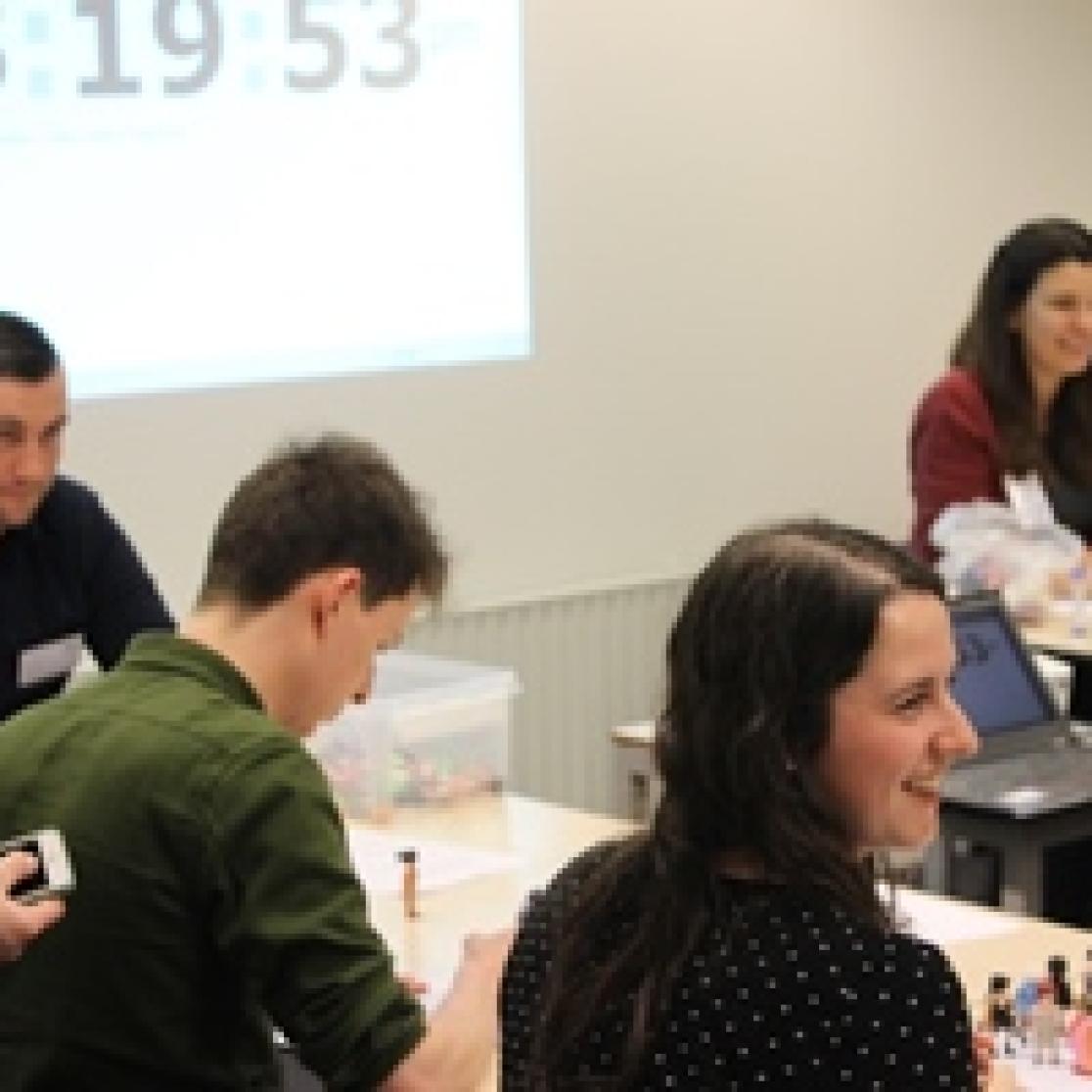
After the workshop, we moved onto the final session of the day, the “double strike”. The atmosphere during this session was great! Everyone was networking and enjoying some food and drinks. There were many different tables to visit and each table was represented by an alumni member including policy advisors, a security officer, an account manager, managers, a clinical researcher specialist, business consultants, project managers, care sales specialists, a junior research associate, an analysist, and PhD students. I could see that everyone seemed to have used the opportunity to network in order to have a better idea of what could be a future employer or a field of interest for a career in healthcare.
All in all, I found that the Career Event was very useful and it offered the opportunity to receive a good deal of information on career opportunities available within healthcare as well as advice in regard to applying for a future job. I am thankful that we have been given the opportunity to attend this Career Event complementary to our master programme.
Maastricht, 8 March, 2017
Anna Leppers
MSchallenger on behalf of HPIM, 2016-2017
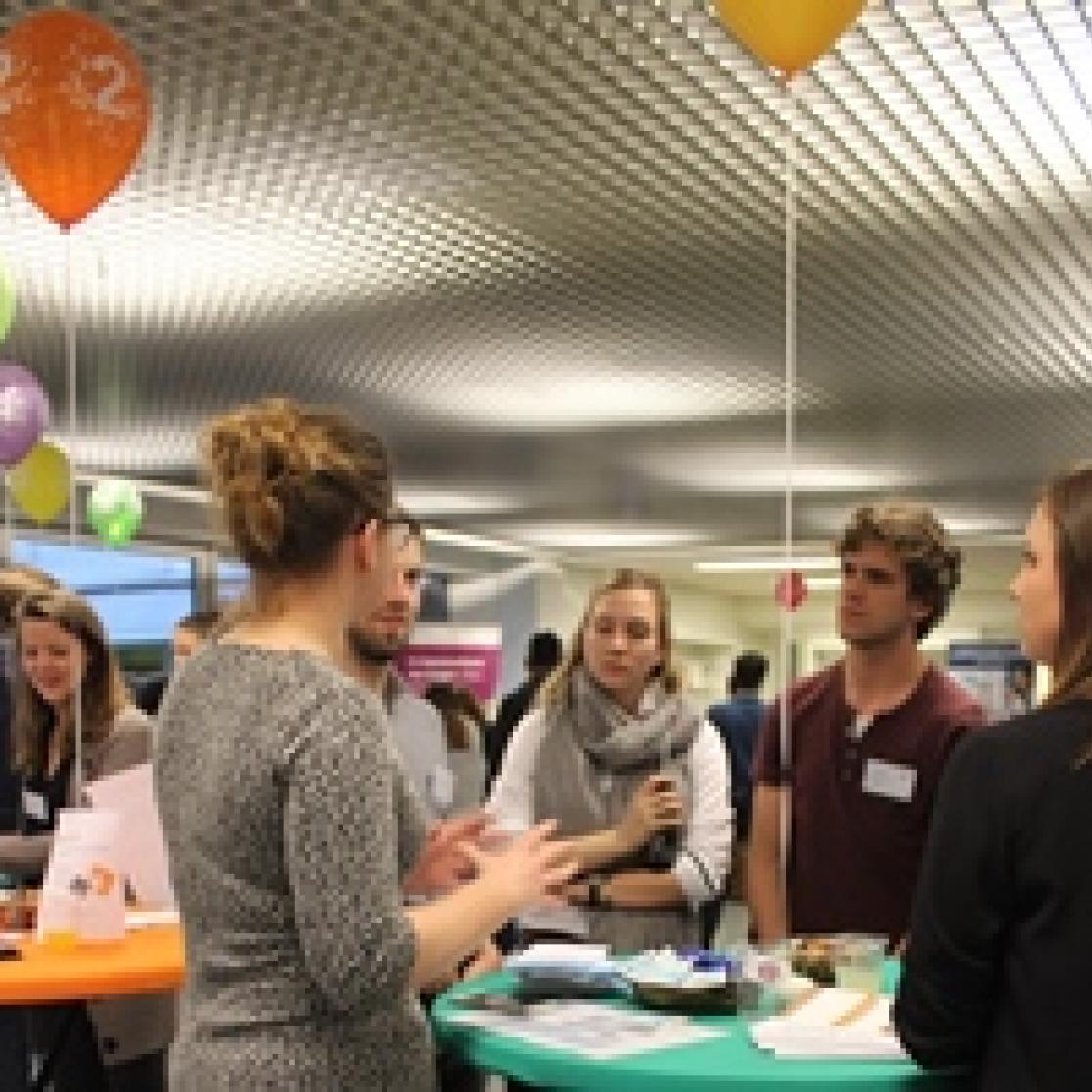
Also read
-
Reconnecting the brain and body: how to control devices with your thoughts
Can you control a robotic arm with your thoughts? Paul Weger (MHeNs) studies this to give back independence to patients with neurological conditions.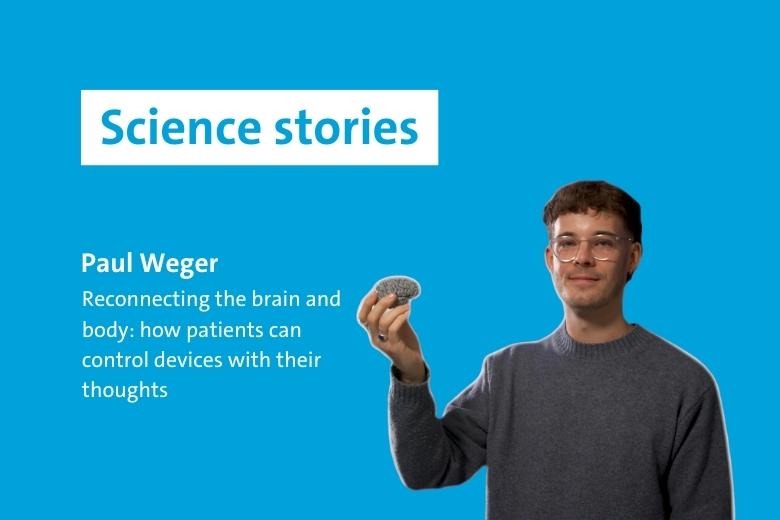
-
Green school playgrounds boost concentration and wellbeing
Children at schools with green playgrounds are better able to concentrate and display more social behaviour. This is the conclusion of a follow-up study within the long-running project The Healthy Primary School of the Future .
-
Ron Heeren appointed fellow of the Netherlands Academy of Engineering
Professor Ron Heeren, distinguished university professor at Maastricht University (UM) and director of the Maastricht MultiModal Molecular Imaging Institute (M4i), was appointed as a fellow of the Netherlands Academy of Engineering (NAE) on Thursday 11 December.